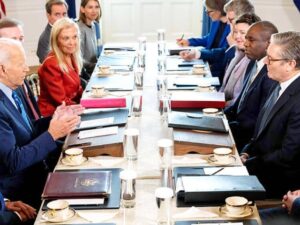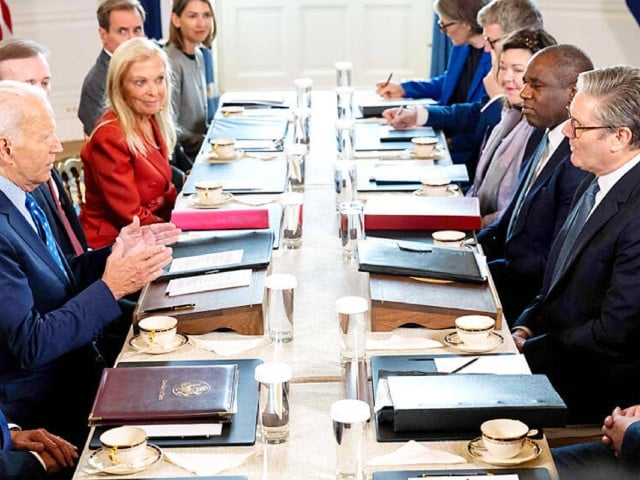US President Joe Biden and UK Prime Minister Keir Starmer have postponed a decision on whether to allow Ukraine to fire long-range Western-supplied missiles into Russia.

The delay comes as Moscow issues stark warnings that such a move would escalate the conflict to a war with NATO.
Starmer, speaking after a meeting with Biden at the White House on Friday, described their talks as “wide-ranging” and focused on overall strategy rather than specific military capabilities.
Officials had previously indicated that Starmer would advocate for sending British Storm Shadow missiles to Ukraine, enabling Kyiv to strike deeper into Russian territory.
However, no definitive announcement was made, and further discussions are expected at the upcoming UN General Assembly later this month.
Biden downplayed Russian President Vladimir Putin’s recent threats that allowing Ukraine to use Western-supplied missiles against Russia would mean the West was “at war” with Russia.
When asked about Putin’s comments, Biden stated, “I don’t think much about Vladimir Putin,” and expressed confidence that Russia would not prevail in the war.
Despite Ukraine’s persistent requests for US-made ATACMS missiles to target Russian forces, Biden has remained cautious. US officials reportedly believe these long-range missiles would offer limited advantages on the battlefield while depleting Washington’s own stockpiles.
This reluctance has drawn frustration from Ukrainian President Volodymyr Zelenskiy, who criticized the West for hesitating to provide the military aid Ukraine needs to counter Russian missile attacks.
Zelenskiy emphasized the importance of enhanced Western support, comparing it to the assistance provided to Israel.
The missile decision was part of broader discussions between the two leaders, which also touched on the ongoing conflict in Gaza.
Britain has suspended arms deliveries to Israel, citing concerns over potential violations of international humanitarian law, while the US has refrained from taking similar action.
Both Biden and Starmer affirmed their support for Israel but underscored the urgent need for a ceasefire and measures to protect civilians in Gaza.
The postponement of the missile decision has heightened tensions, with Russia reacting angrily to the prospect of Ukraine gaining long-range missile capabilities.
Meanwhile, Moscow and Kyiv exchanged 103 prisoners of war each in a deal brokered by the United Arab Emirates, a rare moment of diplomacy amidst the ongoing conflict.
As Russia pushes forward in eastern Ukraine, capturing several villages in recent weeks, the delay in Western missile support raises concerns about Ukraine’s ability to counter Moscow’s advances in the near future.



